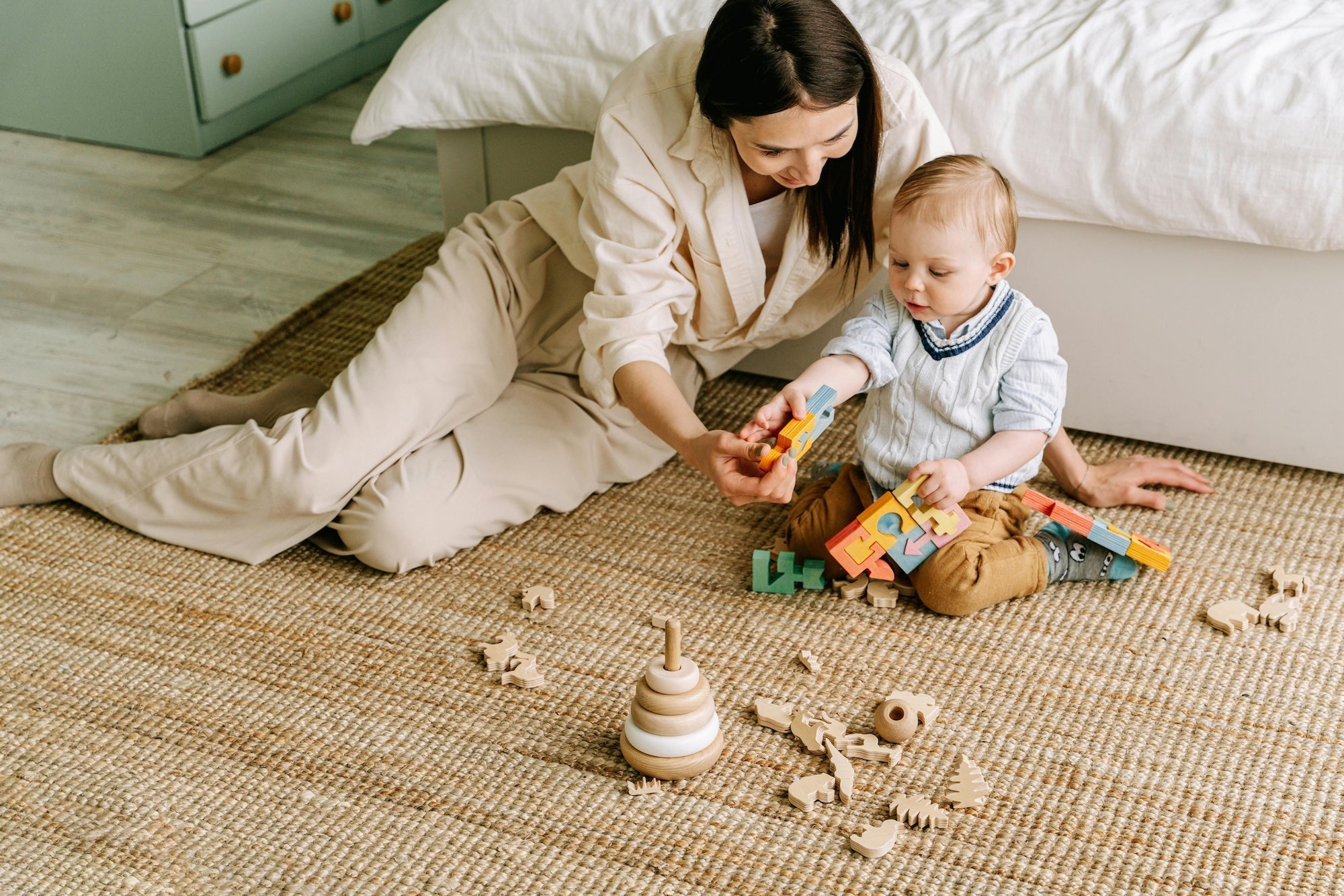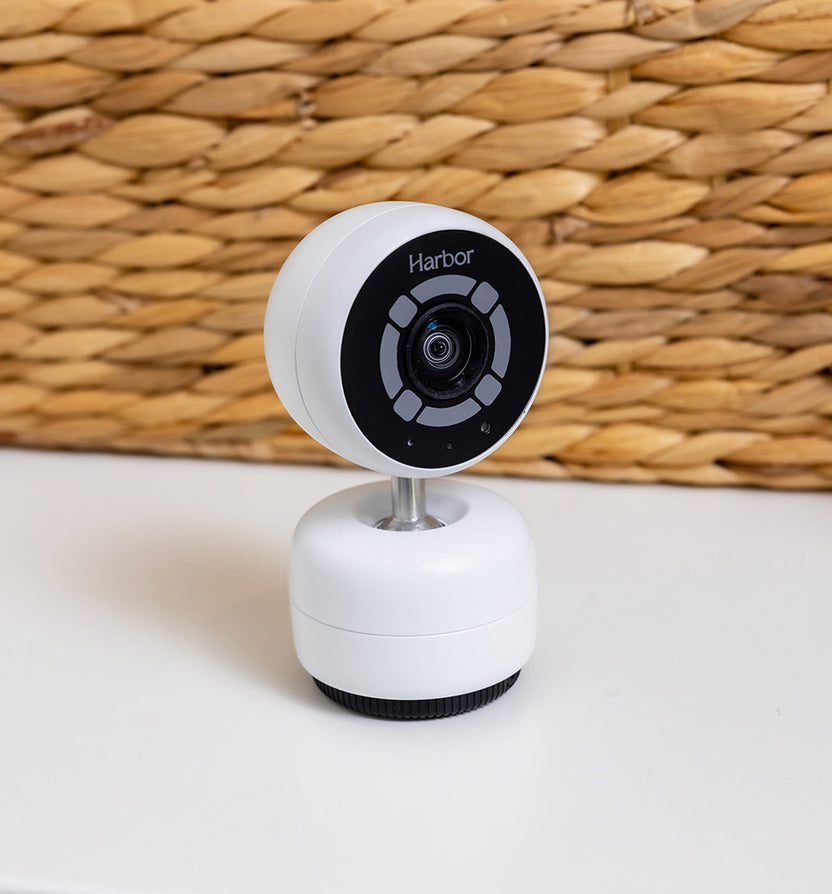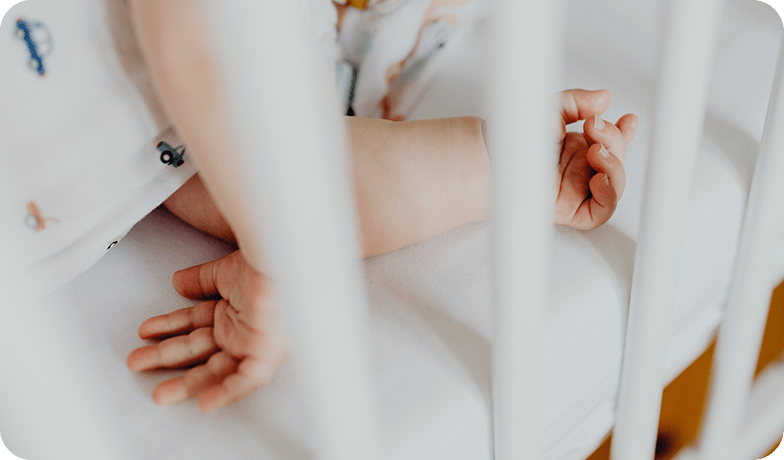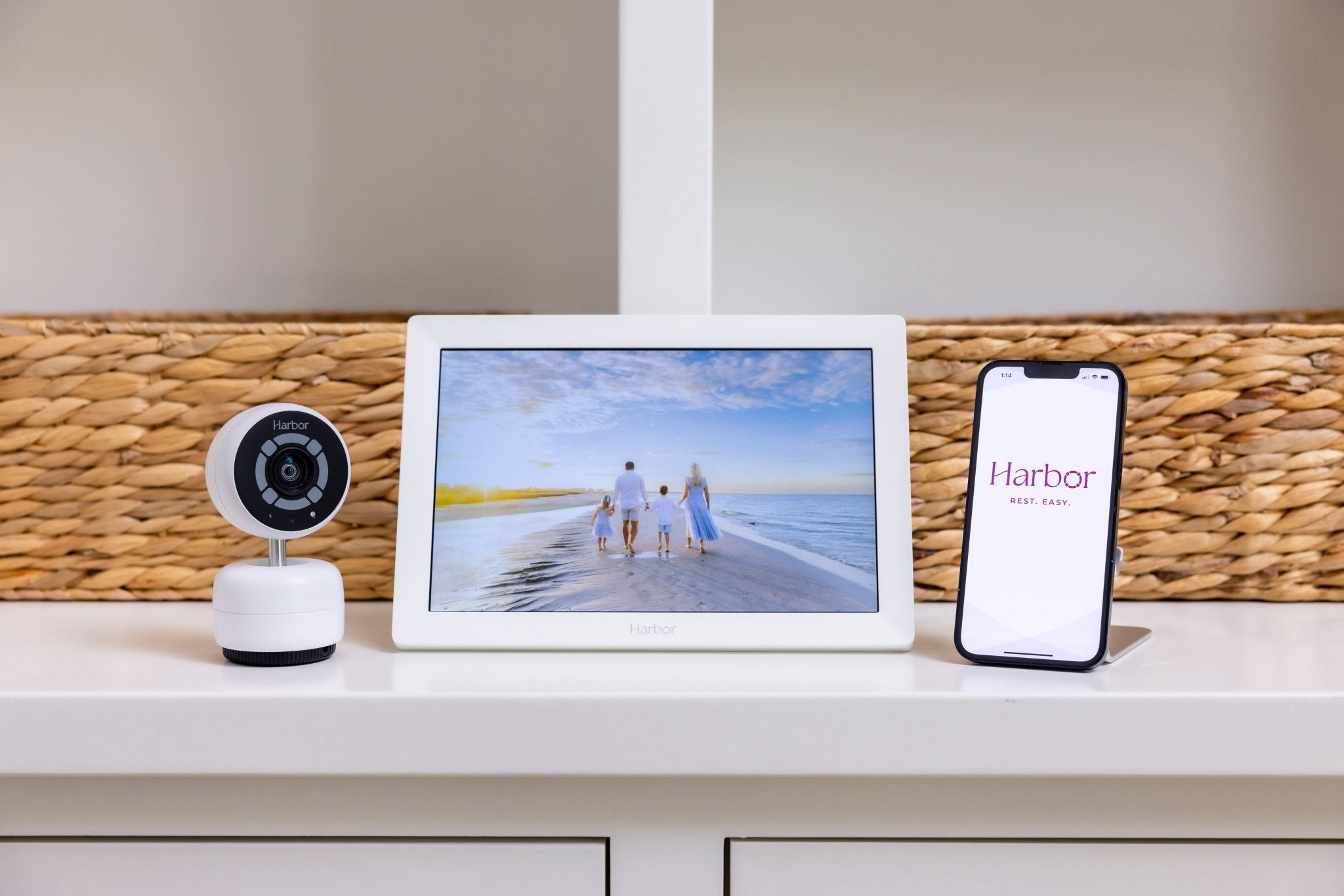
In the vibrant, exhausting, and awe-inspiring world of early parenthood, play often gets dismissed as “just for fun.” But in reality, play is one of the most essential ways infants learn about the world—and about themselves.
When you embrace purposeful play, you're not just entertaining your baby. You're supporting their physical development, emotional well-being, and even their ability to form meaningful relationships.
This guide breaks down the science behind infant play, shares evidence-backed strategies, and gives you practical ideas for turning everyday moments into meaningful developmental milestones. Because at Harbor, we believe your baby deserves more than passive screen time or untested gadgets. They deserve connection, curiosity, and care.
Why Play Is Crucial in the First Year
The first 12 months of your baby’s life are filled with rapid brain growth, motor milestones, and emotional firsts. During this time, play is the most natural and effective way for babies to learn.
According to the American Academy of Pediatrics, play is so important that it’s considered essential to healthy development. Babies who engage in regular, interactive play show stronger cognitive, emotional, and social skills—even in infancy.
Physical Development Through Play
Supporting Gross Motor Skills
Active play like: tummy time, rolling, crawling, bouncing, helps babies develop gross motor skills that are the foundation for movement and coordination. These activities improve:
-
Muscle strength and balance
-
Core control and posture
-
Spatial awareness and sensory integration
Babies who are given the freedom to move (on safe, flat surfaces) often meet physical milestones earlier and with more confidence.
Encouraging Fine Motor Skills
Play that involves grasping, reaching, and exploring textures supports fine motor development. Simple activities like:
-
Playing with fabric books or crinkle toys
-
Practicing grasping large blocks or rings
-
Touching different household textures (supervised)
…all help build hand strength, finger control, and hand-eye coordination. These are critical for feeding, writing, and dressing later in life.
For more on developmentally supportive tools, check out Harbor’s Guides to your baby’s milestones.
Emotional Growth Through Interactive Play
Play isn’t just physical, it’s emotional. It’s how your baby learns to feel safe, connect with others, and express their inner world.
The Role of Parent-Infant Bonding
When you play with your baby, you’re helping them understand that the world is responsive and safe. That attuned, face-to-face interaction builds trust, reduces stress, and supports brain development.
According to Zero to Three, play teaches babies how to regulate emotions, read social cues, and manage frustration in a safe space.
Social Skills Start in the Nursery
Even before babies speak, play lays the groundwork for social communication. Games like peek-a-boo, copying faces, or handing toys back and forth teach:
-
Turn-taking
-
Eye contact
-
Empathy and emotional mirroring
-
Delayed gratification
It may feel silly—but that goofy face you just made? It’s helping your baby build lifelong emotional intelligence.
Age-Appropriate Play Strategies for Infant Development
Play looks different at every stage. Here’s how to support your baby’s development with meaningful, age-aligned play.
0–3 Months: Sensory Connection
At this age, babies are still adjusting to the world outside the womb. Focus on gentle sensory stimulation:
-
Black-and-white cards for visual tracking
-
Gentle music or lullabies
-
Soft talking or humming
-
Tummy time for a few minutes a day
External Resource: CDC Milestones – 2 Months
4–6 Months: Cause and Effect
Babies begin to explore how their actions make things happen:
-
Play with rattles or toys that crinkle
-
Press buttons on soft toys to create sound
-
Mirror games (watching their face mimic yours)
-
Simple back-and-forth games like “airplane”
These activities help form early memory and logic skills.
7–12 Months: Exploration and Independence
Now that they’re likely crawling, scooting, or even standing, babies need safe space to explore:
-
Stacking soft blocks
-
Rolling a ball back and forth
-
Water play in a safe bowl or high chair tray
-
Playing hide-and-seek with objects
They’re not just playing—they’re building motor coordination, memory, and confidence in their own problem-solving abilities.
The Power of Parent Involvement in Infant Play
You don’t need fancy gear or scheduled “baby enrichment” classes. Your presence is the enrichment.
Use Everyday Moments as Play
Turn daily routines into playful interactions:
-
Diaper time = silly songs + name games
-
Feeding time = describing textures and colors
-
Bath time = splash games and floating toys
This builds vocabulary, emotional security, and sensory exploration—without carving out “extra” time.
Responsive Play = Stronger Learning
According to ChildCare.gov, when adults follow a child’s lead in play, it encourages creativity, problem-solving, and self-confidence.
Instead of directing every moment, watch what interests your baby and join in. You’re teaching them that their curiosity matters.
Safe, Stimulating Play Environments
Your baby doesn’t need a Pinterest-worthy playroom. But they do need:
-
A safe, clutter-free area to explore
-
Soft surfaces for rolling and crawling
-
A mix of familiar and novel toys
-
Opportunities to move, mouth, and manipulate
Make sure the environment changes over time: rotate toys, adjust lighting, and introduce new objects as your baby grows.
What to Avoid: Over-Stimulation and Passive Tech
While the baby gear market is booming, not all tools support development. In fact, some can interfere with sleep, attention, and emotional regulation.
Avoid: Over-reliance on Flashy Toys
Toys that flash, beep, or move on their own can overwhelm your baby’s nervous system, especially when used before 12 months.
Limit: Screen Time
The AAP recommends no screen time for babies under 18 months. Even “educational” videos don’t support early development like real-life interaction does.
Note: Give yourself grace. Parenting is not a one-size-fits-all approach.
Beware: Tech That Tracks but Doesn’t Teach
Devices that measure sleep or motion (without clear clinical use) may increase parental anxiety without improving outcomes. Learn more in our blog, Why Infant Biometrics are a BAD Idea.
Why Play Supports You, Too
Play isn’t just for your baby. It supports you.
-
It gives you confidence in reading your baby’s cues
-
It creates joy and reduces stress
-
It fosters secure attachment, which benefits long-term behavior
-
It strengthens your own emotional regulation as a parent
You don’t need to entertain or educate 24/7. Just be there. Be curious. Be responsive.
Takeaway: Let Play Be Simple, Intentional, and Joyful
Play is how your baby builds their world. Every moment you spend tickling, stacking blocks, or making faces helps grow their brain, body, and bond with you.
You don’t need expensive gear. You don’t need a “perfect” activity plan. You just need presence, patience, and a little playfulness.
At Harbor, we’re here to support every side of your baby’s development—from restful sleep to joyful connection.




